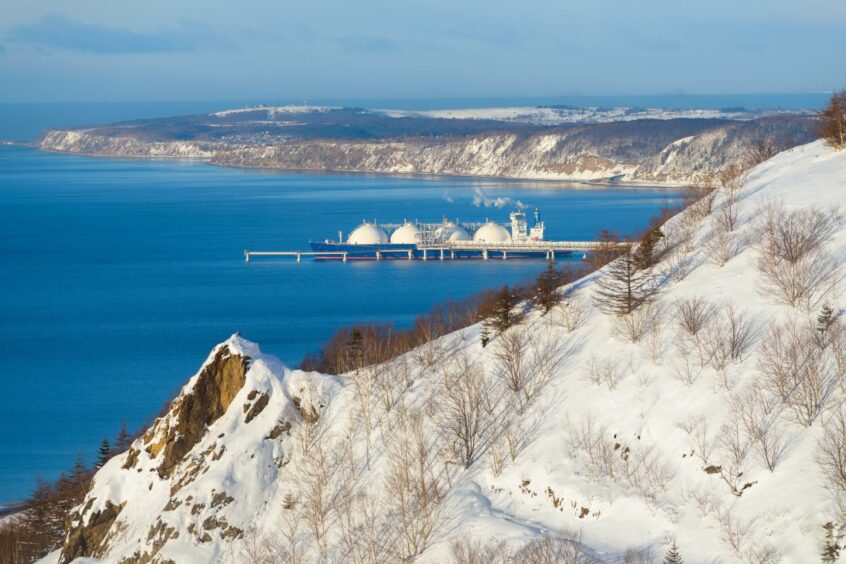
Russia has asked buyers from its Sakhalin-2 LNG plant to pay Gazprombank JSC, throwing customers including Japan and South Korea into a dilemma over sanctions that threaten shipments.
Sakhalin Energy LLC, the new operator, sent settlement instructions to customers for paying in US dollars to Gazprombank, according to documents seen by Bloomberg. Gazprom PJSC owns just over 50% of Sakhalin Energy, while Gazprombank is the lending arm of Russia’s gas exporter.
The step is the latest effort by Russia to consolidate control over its energy assets as President Vladimir Putin also limits flows into Russia’s biggest markets in Europe, in what is widely seen as the use of gas as a weapon.
The majority of LNG shipments from Sakhalin-2 go to Japan, which relies on the facility for stable energy supplies. South Korea and Taiwan are also importers from Sakhalin-2.
Payments were previously being made to non-Russian banks. The payments to Sakhalin would be made via the Bank of New York Mellon, acting as the correspondent bank in the US, according to the Aug. 16-dated paperwork. Using a US bank as an intermediary may avoid potential sanctions.
At least two LNG buyers are checking with their legal teams if they can make payments to Gazprombank without violating any sanctions, according to people with knowledge of the matter. Sakhalin Energy also provided an option to pay through the Moscow-based branch of Raiffeisenbank AO, but Gazprombank is preferred, said the people, who requested anonymity as the information isn’t public.
Sakhalin Energy, Gazprombank and Raiffeisenbank’s Russia branch didn’t immediately respond to requests for comment. Bank of New York Mellon also didn’t respond.
Moscow ordered the establishment of a new Russian operator for Sakhalin-2 in early August. The order followed a June 30 decree by Putin, which required transfer of the project operator from Bermuda to a new Russian entity, citing risks to the country’s interests and economic security.
Sakhalin last week asked customers to sign LNG purchase agreements with revisions to its name, address and lender bank, Bloomberg reported.
Russia earlier this year imposed new payments terms on European pipeline gas importers, which include opening an account in rubles and one in foreign currency with Gazprombank. The request initially divided European nations due to fears over breaching sanctions, but ultimately most gas importers found a way to comply with the demand.